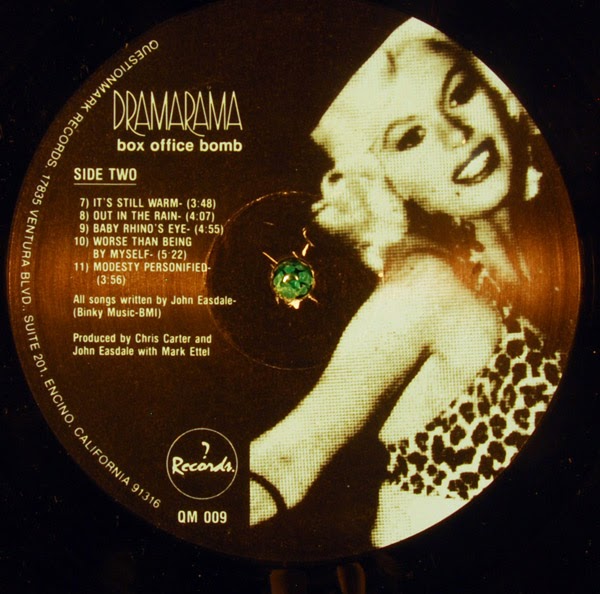Unfortunately, most of the American record company execs don’t really “get” reggae, and so throughout the 70’s and early 80’s they engaged in clumsy promotion and ineffective exposure. They treated reggae the way they treated all other music, as just another product to mass-produce, advertise and sell, no different than breakfast cereal or foot powder. It never dawned on them that reggae might have a unique appeal to a select group of music lovers, and when faced with something that didn’t fit their preconceived assumptions it’s no surprise that they fucked it all up.
They packaged reggae the same way they did soul or funk – as an ethnic niche only of interest to Black America. The result? Failure. In the US reggae never Caught A Fire (get it?) beyond Bob Marley, and when he died in 1981 the labels were left with the task of trying to actually raise interest in other reggae musicians.
So, the record companies, as they will do, concluded that the problem was with the music rather than their inept handling, and decided that they needed to “fix” reggae.
The result is the album Cliff Hanger.
Side 1:
|
 
|
Side 2:
|
And the sad thing is that, by all rights, Cliff ought to have had more success in the United States. His resume certainly would lead one to believe so: great voice, engaging personality, and reggae bona fides. But Cliff just never resonated with audiences here the way Marley did.
 Maybe that was because nobody could ever really connect the way Marley did. In any case, Cliff was a different sort of reggae singer than Marley. Marley was Roots, while Cliff was more pop. Marley brought the spiritual side of rastafari and the struggle to leave Babylon for Zion, while Cliff was more about the here and now. Marley sang about Jah, while Cliff sang about Joe (if that makes sense).
Maybe that was because nobody could ever really connect the way Marley did. In any case, Cliff was a different sort of reggae singer than Marley. Marley was Roots, while Cliff was more pop. Marley brought the spiritual side of rastafari and the struggle to leave Babylon for Zion, while Cliff was more about the here and now. Marley sang about Jah, while Cliff sang about Joe (if that makes sense).And maybe that’s why Cliff Hanger sucks so much. Because Cliff, being more a pop guy, may likely have been open to changing his music in order to make it more appealing to American audiences. Which, paradoxically, made it incredibly un-appealing.
As a punchline to all this, in what can only be called the irony of just how out-of-touch the Grammy awards are, Cliff Hanger ended up winning the 1986 Best Reggae Album award - despite the fact that there really is no reggae on the record at all. I mean, the Police and the Clash were doing more legit reggae than Cliff did on this thing..
Up next: Prog, soprano style.


































